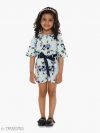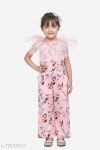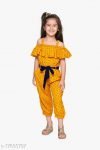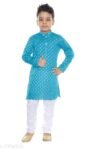Description
Vande Matram Printed White T-shirt
- Material: The material of the T-shirt should be high-quality, comfortable, and durable. Customers will want to know what the T-shirt is made of, so be sure to include this information in the product description.
- Style: T-shirts come in many different styles, including crew neck, V-neck, scoop neck, and more. It’s important to choose a style that will appeal to your target audience.
- Design: The design of the T-shirt is what will make it stand out from the competition. Consider using bold, eye-catching graphics, slogans, or patterns to attract customers.
- Color: Choose a color scheme that will appeal to your target audience. You may also want to consider offering different color options for each design.
- Size: Make sure to offer a variety of sizes to accommodate different body types. It’s also a good idea to provide a size chart to help customers choose the right size.
- Price: Set a competitive price for your T-shirts. Consider the cost of materials, production, and shipping when determining your pricing strategy.
Vande Matram Printed White T-shirt
Overall, when selling T-shirts online, it’s important to create a product that is both comfortable and stylish, while also considering the preferences and needs of your target audience.
- Size: Kids come in a wide range of sizes, so it’s important to offer a variety of sizes to fit different ages and body types. Providing a size chart or sizing guide can help customers choose the right size for their child.
- Material: Kids’ T-shirts should be made from high-quality, soft, and durable materials that can withstand playtime and washing. Cotton or a cotton blend is a popular choice for kids’ clothing.
- Design: Kids’ T-shirts often feature fun and playful designs, such as cartoon characters, animals, or bright colors. Consider the interests and preferences of your target audience when choosing designs.
- Safety: When designing kids’ T-shirts, safety should be a top priority. Avoid using small parts or decorations that could be a choking hazard, and ensure that the T-shirt is free from harmful chemicals or substances.
- Comfort: Kids’ T-shirts should be comfortable and easy to wear, with features like tagless labels and breathable fabrics. This can help ensure that kids are happy to wear the T-shirt and that parents are happy with the purchase.
- Price: Set a competitive price for your kids’ T-shirts, taking into account the cost of materials, production, and shipping. Keep in mind that parents may be more price-sensitive when buying clothing for their kids, so offering a good value can help attract customers.

















